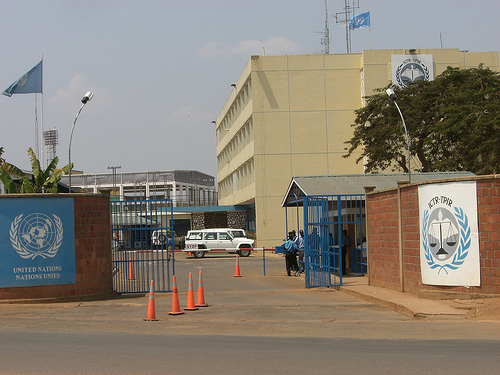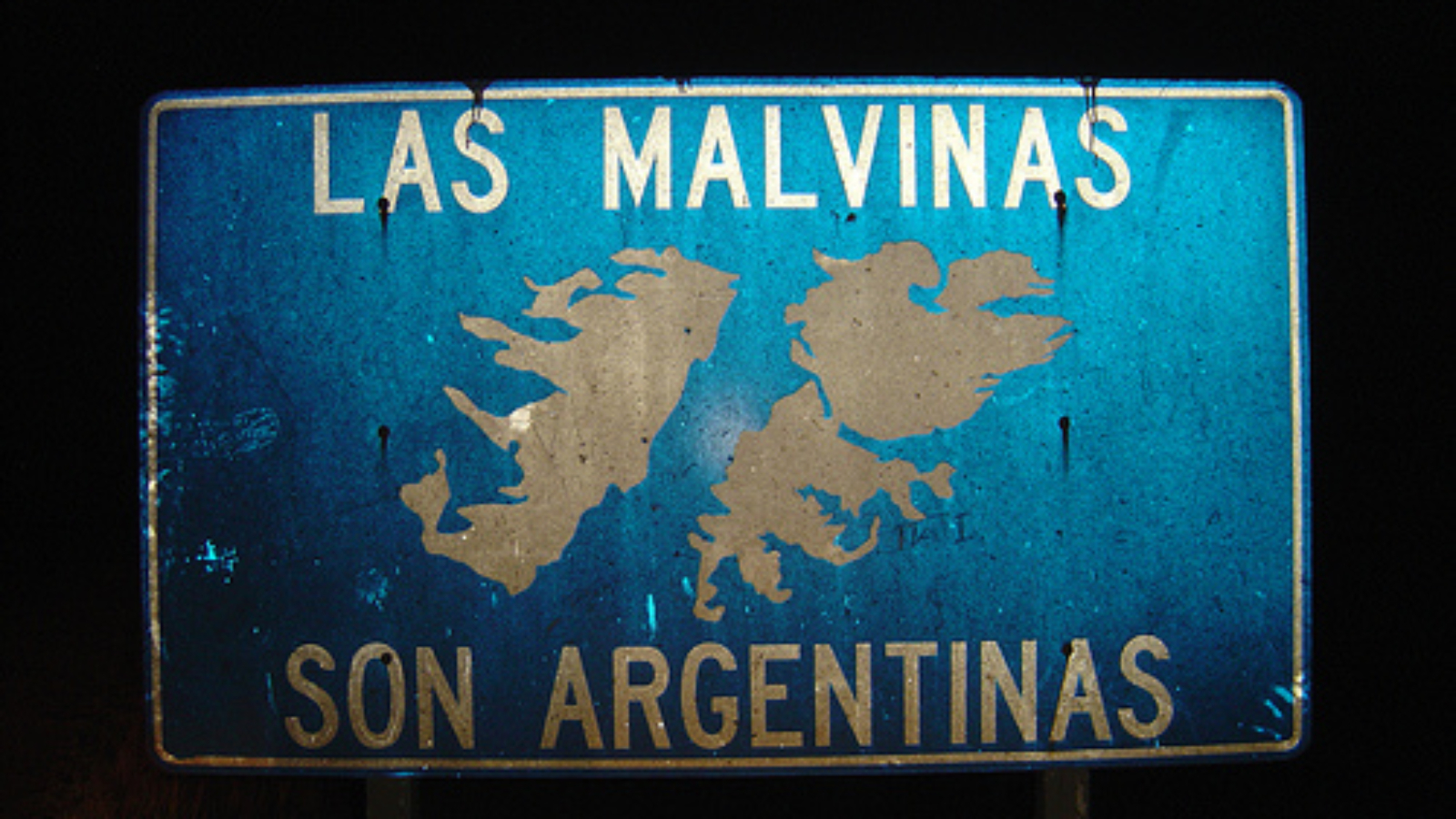A resolution by the Organization of American States (OAS) has reignited tensions between Argentina and Britain over the Malvinas Islands, once the object of the Falklands War.
The resolution, introduced by Brazil, supports Argentina’s desire for a peaceful end to disputes over the Malvinas’ sovereignty, calling on British officials to “restart negotiations as soon as possible.” Reacting to the resolution, a British spokesperson asserted that there is “no doubt” about the islands' sovereignty: “The principle of self-determination stands, as stated by the UN’s charter. There cannot be any negotiations on sovereignty unless the islanders wish for them.”
Argentine Vice-Chancellor Victorio Taccetti countered by referring to an international consensus against British sovereignty over the islands: “I believe our work is creating a growing global awareness that understands this attitude over occupation of the islands has to end.” Argentina’s Foreign Affairs Minister Jorge Taiana thanked the member states of the OAS and denounced Britain’s “unilateral and illegal acts” in the Malvinas.
Disputes over the sovereignty of the Malvinas (known in Britain as the Falkland Islands) date back to the eighteenth century, when the islands were part of the Spanish colonial empire. When Argentina declared independence from Spain in 1816, it also claimed sovereignty over the Malvinas. However, the British began settling the islands after the United Kingdom occupied them in 1833. Argentina unsuccessfully attempted to reassert control over the Malvinas in a brief war in 1982. Tensions flared again earlier this year when Britain began offshore drilling near the islands and Argentina responded with stricter monitoring of shipping activity in the region.
—Peter Bozzo
Despite improvement in the value of its exports, Finland has been the first country in Europe to experience a double-dip recession.
After struggling through the global economic downturn and greatly decreased external demand for its main exports, paper and Nokia brand products, Finland’s economy contracted 0.4% during the first quarter of 2010. This follows a 0.2% decline from October to December of last year and an overall 7.75% decline during the whole of 2009, mostly due to a collapse in foreign trade. This was the largest decline in the Eurozone area.
Finland has posted two consecutive quarters of negative growth since October 2009, though the value of Finnish exports grew 7% since April of last year, while the volume of exports fell 2.2% compared to the first quarter of 2009. This is bad news for a small nation dependent on foreign trade, which makes it deeply vulnerable to global demand fluctuations.
Furthermore, the International Monetary Fund has weak predictions for future growth of Finland. In a report released earlier this week, the IMF projected only 1.25% growth for the rest of 2010 and barely 2% growth for 2011. Low domestic consumption, high government spending, continued low external demand for Finnish exports and high unemployment are the main factors cited. Finnish unemployment is up to 9.3% from 8.8% of April of last year.
—Nestor Bailly
 According to the Communist Party of China Political and Legislative Affairs Committee, China has eliminated 1,400 criminal gangs since the start of a law enforcement campaign targeting organized crime in February 2006.
According to the Communist Party of China Political and Legislative Affairs Committee, China has eliminated 1,400 criminal gangs since the start of a law enforcement campaign targeting organized crime in February 2006.
Officials have also seized 3,400 guns and probed 120,000 gang-related crimes during the campaign.
These numbers have increased dramatically in the past year. In February 2009, the Chinese Ministry of Public Security reported that 900 gangs had been eradicated and 100,000 crimes had been solved.
Chinese officials hope for even more success in the future. A recent work proposal from the Legislative Affairs Committee recommends that law enforcement seek further progress in the area of organized crime by developing more rigorous and advanced methods of going after gangs.
—Caroline Soussloff
The United Nations High Commissioner for Refugees (UNHCR) has been ordered to leave Libya without reason.
The refugee agency has worked in Libya since 1991, helping over 9,000 refugees and 3,700 asylum seekers in the country with education, health care and shelter. UNHCR spokesperson Melissa Fleming said the organization hoped to return soon. Though it is in talks with Libya to reenter the country, at the moment there is no indication of when that may happen.
The Libyan government has refused comment, though speculation suggests centers on the UNHCR’s occasional criticism of Libyan authorities—deploring treatment of asylum seekers and refugees. Fleming said the largest problem is the new difficulties refugees will face without the assistance of the UNHCR.
“This will leave a huge vacuum for the thousands of refugees and asylum seekers who are there already, and of course those who continue to arrive steadily on boats every week,” Fleming said, adding that the UNHCR had been working on a resettlement program to move refugees to other countries. Fleming said the program would not be able to continue while UNHCR is not allowed in Libya.
The largest number of refugees in Libya are from Palestine, though others are from Iraq, Sudan and Somalia, among others.
—Seth Walder
 American lawyer Peter Erlinder has been denied bail by a Rwanda court.
American lawyer Peter Erlinder has been denied bail by a Rwanda court.
Erlinder entered Rwanda hoping to represent jailed presidential candidate Victoire Ingabire, who Rwandan officials have accused of propagating ethnically-charged ideology. Little did he know he would soon be in need of representation of his own.
Because of its recent history, Rwanda has a fraught experience with freedom of expression. As a result, Rwanda has come under fire by human rights activists and the U.S. State Department. The Rwandan government is most sensitive to rhetoric that might be construed as supporting genocide, and penalizes those who use it. “We consider [genocide denial] detrimental to our national security,” Rwanda’s Prosecutor General, Martin Ngoga, has said.
Erlinder was arrested on May 28 and charged with denying the 1994 genocide. He has pleaded not guilty. “It is the first time I have come to know that my obscure publications back in America were that bad and could amount to genocide denial," he said in his defense. His arrest is controversial because he has been a vocal critic of Rwandan president Paul Kagame in his work as a defense lawyer at the International Criminal Tribunal for Rwanda.
The saga of Erlinder’s imprisonment has unfolded like a soap opera, with accusations of faked illnesses and attempted suicide. The latest installment was a Tuesday hearing when Erlinder was denied bail. Claiming that his health is suffering, he was seeking permission to return to the United States for medical treatment.
—Caroline Soussloff
